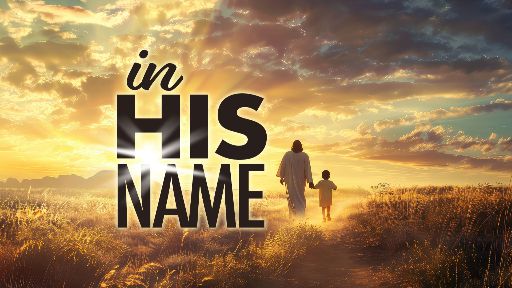-
The Name We Claim Series
Contributed by Johnny Wilson on Nov 28, 2017 (message contributor)
Summary: Early believers were able to face opposition and tribulation because they focused upon their identity, following Jesus. What is our identity?
Sometimes, we get suckered in by the idea that identity and relationship are not important. We buy into Shakespeare’s rhetorical question and answer from Act II, Scene II of Romeo and Juliet:
What is in a name? That which we call a rose
by any other name would smell as sweet.
We express such sentiments, but when someone asks what political party with which we are most affiliated, we usually answer “Republican” or “Democrat.” When someone asks where we were educated, we usually say proudly, “I attended Georgia Tech” or “I studied at Harvard” (even if we didn’t graduate) or “I graduated from UK” or “I graduated from UW” if that is the case. A lot of alumni have so many license plates, mugs, caps, shirts, and banners from their college or university that you’d think they were still in school. When someone asks our favorite sports teams, we give them a name: Cubs, Braves, Ducks, Thrashers, Lakers, or Panthers. Names are vital in our society for telegraphing our loyalties, our backgrounds, our attitudes—in short, our identitites.
The early church also placed great importance on a name. For the last two sermons, we have been focused on Peter’s healing of the lame man by using the name of Jesus (Acts 3:16). In this morning’s message, we see the results of that use of this powerful name. It is the same result we often face whenever we use it. They faced opposition. (Read Acts 4:1-7)
The healing of the man, the preaching of a sermon that explained the significance of Jesus as the Messiah and confidently proclaimed Him as “risen from the dead,” and the resultant buzz, gossip, shouting, and conversation within the outer courts of the temple was such that it became a public nuisance. Just like handing out evangelistic tracts outside public schools has become a “public nuisance” to be prosecuted in our day, so the “authorities” deemed these disciples to be engaged in disruption of the peace. Just like speaking about Jesus in a public forum or praying in the name of Jesus has now become politically incorrect because the “authorities” think it is “exclusive” language at best and “hate speak” at worst, the priests and the “captain of the guard” decided to remove the so-called “cause of the disturbance” and remove them.
But the Scripture tells us the real reason they were concerned in verse 2. Peter and John were proclaiming the power and miraculous triumph of Jesus, the Messiah that they had proclaimed a Messianic fraud. Worse, they were using Jesus’ resurrection and its empirical proof of life after death to undermine the Sadducees who did not believe in life after death. In the same way today, there are people who resent it when we proclaim Jesus as the ONLY way to salvation. Humankind would like to believe that there are many pathways to salvation so that we wouldn’t have to be beholden to Jesus—it is part of our innate pride to try to find another way. AND, we resent it if someone tells us that we’re wrong. In terms of natural humanity, we humans always think that we’re the special case: “I won’t get fat if I eat too much ice cream—my metabolism is too high;” “I won’t get addicted if I experiment with drugs—I have too much self-discipline;” “I won’t get caught if I rob the bank—I’m too clever;” “I won’t get drunk if I have too many drinks—I can hold my liquor;” “No one will know if I’m telling a lie—I’m too smart;” “I can commit the perfect murder—I have a plan;” or “I won’t go to hell if I just try to do my best—I know more than the Bible does.”
The folks who took Peter and John into custody in order to calm down the mob were saying one thing and acting upon another. They may have said that they put Peter and John into “protective custody” to protect them from the mob, but there was no danger. They may have said that they put the apostles into custody to protect the temple itself from being desecrated by an unruly mob that the apostles had allegedly incited. The reality is that they put Peter and John away for a cooling off period because the apostles were too effective in their message.
Look at verse 4. Now, there are different ways to take this verse. Some take it that there were 5,000 who saw the healing, heard Peter preach, and responded to Jesus right there in the temple environs. This would make the early church at least 9,000 members strong in a city with a population circa 25,000. Some would take the number as purely symbolic—5 meaning a handful, a moderately sufficient amount but not as much as you could carry, times 1,000, the number 10 (as much as you could possibly carry—abundance) cubed (10*10*10 or a divine number of 10s). So, it is a divinely sufficient number, but it is not the divinely abundant number (10,000) or the divinely perfect number (12,000). I think it does mean divinely sufficient—it’s the number God intended to win for now, but not all the early church would win. However, I think it is a real number as well.

 Sermon Central
Sermon Central



